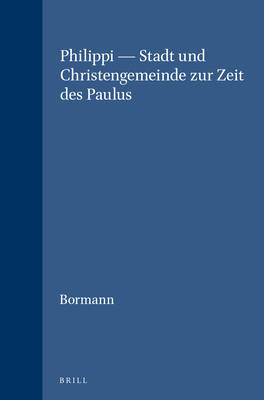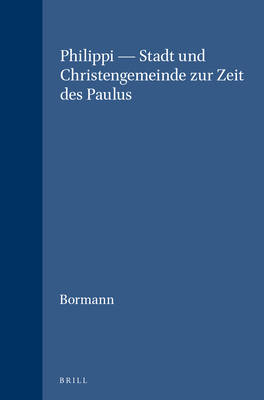
- Afhalen na 1 uur in een winkel met voorraad
- Gratis thuislevering in België vanaf € 30
- Ruim aanbod met 7 miljoen producten
- Afhalen na 1 uur in een winkel met voorraad
- Gratis thuislevering in België vanaf € 30
- Ruim aanbod met 7 miljoen producten
Zoeken
Omschrijving
The Roman colony of Philippi is the site upon which Paul founded his first European congregation. There, he encountered a political entity which bore the stamp of Roman culture through and through.
Part I describes Philippi's political and religious situation based on numismatic, epigraphical, archaeological and literary sources. Part II reconstructs the relationship between Paul, the congregation, and the city of Philippi, and demonstrates the influence which the Roman environment exerted on the church's organization and preaching. The work reaches the conclusion that the Philippean community assumed an active and self-confident role in implementing its mission. In so doing, it clashed with the Roman authorities and their insistence upon a religious praxis that did not call into question the principles or existence of the Roman State.
The book contributes to the interpretation of the Epistle to the Philippians as well as to the history of early Christianity and the history of Religions during the first century.
Part I describes Philippi's political and religious situation based on numismatic, epigraphical, archaeological and literary sources. Part II reconstructs the relationship between Paul, the congregation, and the city of Philippi, and demonstrates the influence which the Roman environment exerted on the church's organization and preaching. The work reaches the conclusion that the Philippean community assumed an active and self-confident role in implementing its mission. In so doing, it clashed with the Roman authorities and their insistence upon a religious praxis that did not call into question the principles or existence of the Roman State.
The book contributes to the interpretation of the Epistle to the Philippians as well as to the history of early Christianity and the history of Religions during the first century.
Specificaties
Betrokkenen
- Auteur(s):
- Uitgeverij:
Inhoud
- Aantal bladzijden:
- 264
- Taal:
- Duits
- Reeks:
- Reeksnummer:
- nr. 78
Eigenschappen
- Productcode (EAN):
- 9789004102323
- Verschijningsdatum:
- 1/11/1994
- Uitvoering:
- Hardcover
- Formaat:
- Genaaid
- Afmetingen:
- 165 mm x 251 mm
- Gewicht:
- 625 g

Alleen bij Standaard Boekhandel
+ 741 punten op je klantenkaart van Standaard Boekhandel
Beoordelingen
We publiceren alleen reviews die voldoen aan de voorwaarden voor reviews. Bekijk onze voorwaarden voor reviews.











